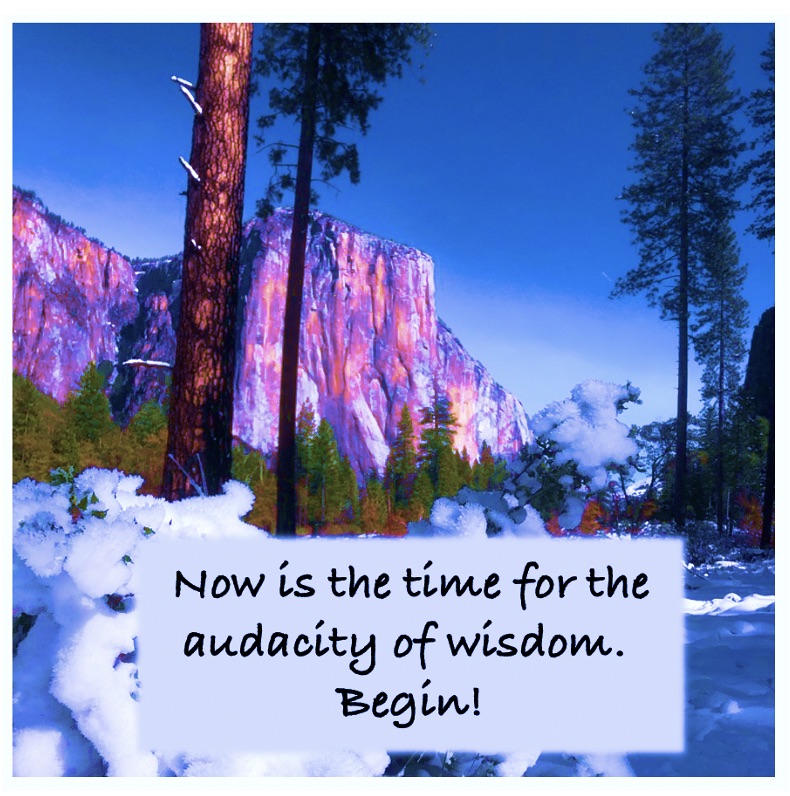The transition to a new year is an opportunity to begin again. It is also a time to reflect on days gone by. This process is important, and teaches us lessons in virtue. Life is a series of stops and starts. As the calendar changes, we can practice ending well, and beginning again.
Change is difficult. We clutch tightly to the present. We dwell on the past. And we fear the future. The solution is to love without clinging, to live without fear, and when the time comes, to leave without complaint.
The world’s wisdom traditions often describe life as a process of ending and beginning. The Taoist sage Lao-Tzu said, “Death and birth, ending and beginning are nothing more than the sequence of day and night.” He saw good fortune and bad luck as trifling changes in the eternal flow of things.
The geniuses of living are masters at riding that flow. They manage change with skill and grace. They savor what is, cherish what was, and stride confidently into the unfinished future. Virtuous sages recall the past without nostalgia. They greet the dawn with joy. They are grateful for what they receive. And when the time comes to depart, they take a bow and move along.
Ending things requires courage. It hurts to say farewell. But all good things must end. When the party’s over, it’s time for a brave goodbye. It is not wise to linger too long in parting.
The bittersweetness of leaving is simply part of life. Children move out. Careers end. And friends pass away. This is difficult. But there is a stark purity in closing the door on the past. In some cases, the emptiness of the end comes as a relief. In other cases, the end comes too soon, causing profound suffering.
For a Taoist sage, there is the right time to mourn and then it’s time to move along. For the rest of us, it’s not so easy to let go. Grief is part of life. But it should not become an anchor that ties us to what no longer exists.
The challenge is to accept the inevitability of change, while turning a loss into an opportunity. Starting anew requires courage, and a creative spirit. As we make our new year’s resolutions, we seek to innovate and renew. A resolution is a promise to the future.
New challenges will require us to make a few adjustments. We ought to keep our promises. But there is no telling what might happen. The world will throw up impediments to our resolve. There will be good luck and misfortune. We ought to hope to keep an even keel and persevere through these changes.
Virtues like steadfastness and fortitude help us to remain constant and true. But fortitude without flexibility can become stiff. There is value in keeping your resolutions. But the geniuses of living are not slaves to their promises. They have a kind of free intelligence that is both consistent and accommodating. They embrace the next moment with open arms, while also remaining steady.
The Stoic sage Marcus Aurelius taught that we should accept what happens, while staying true. It is easy to lose yourself and lie to yourself. The difficult task is to remain who you are, while going with the flow.
A curious and open mind is essential. This helps us start something new. The curious mind is interested in what the future may bring. A related virtue is zest or enthusiasm. This is creative and forward-looking energy. It is the gusto or ambition that causes you to jump out of bed in the morning and welcome the day.
The new year offers a fresh start. This is an opportunity to erase some bad habits and write a new chapter. It can help to consult ancient wisdom traditions such as Taoism or Stoicism. But books and sayings are less important than common sense.
Life is full of hellos and goodbyes. The challenge of living well is to balance change and continuity. As we make our resolutions and look back on the past year, we should aim to keep what’s good, welcome the better, and let go of what we no longer need.
Read more at: https://www.fresnobee.com/opinion/readers-opinion/article297625698.html#storylink=cpy



